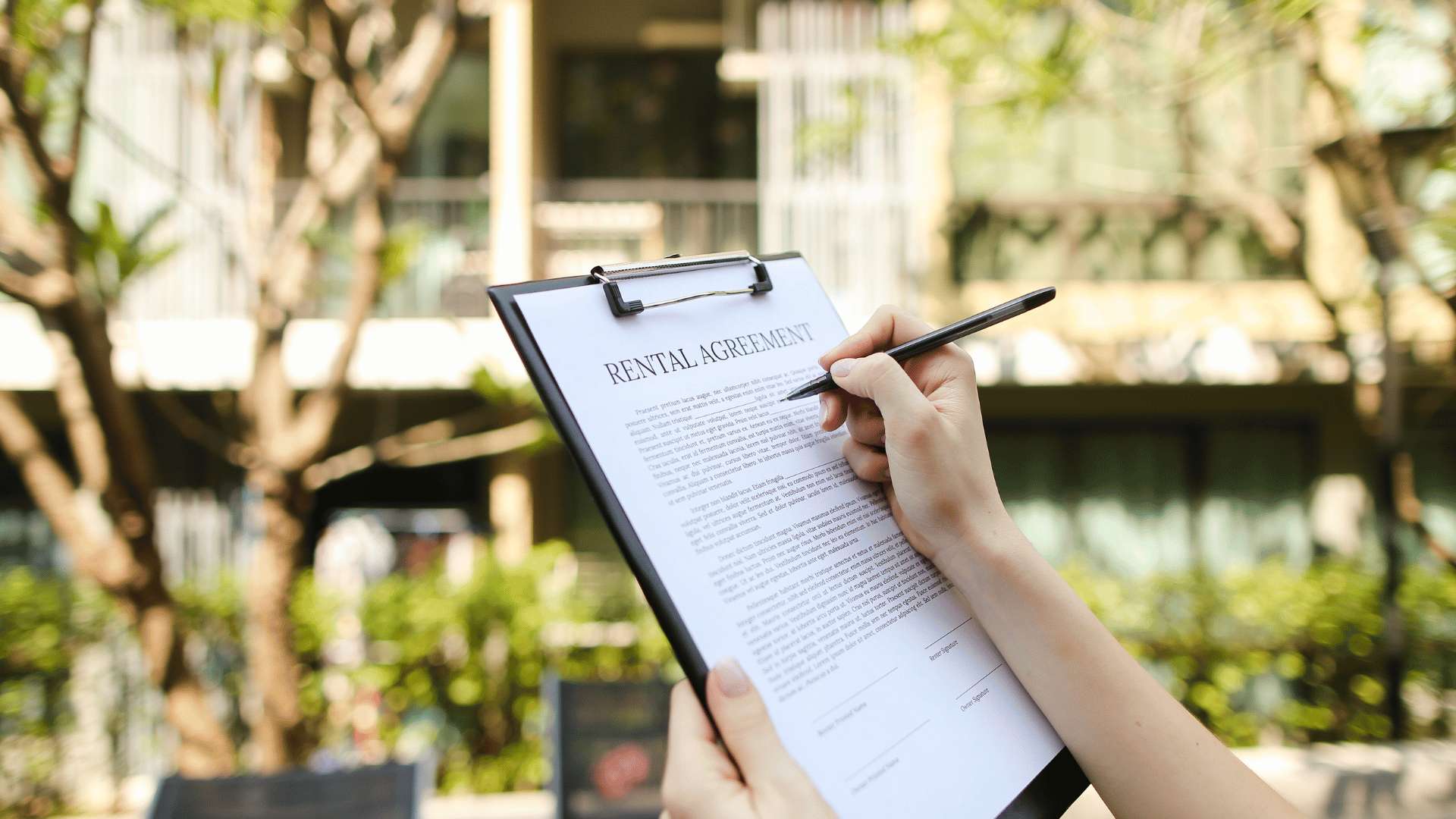Managing rental properties effectively requires careful planning, organization, and attention to detail. Here are seven key steps to help you learn how to manage rental properties and your rental properties more effectively.
Screen tenants carefully
The first step in effectively managing rental properties is to screen tenants carefully. This includes conducting background and credit checks, verifying employment and income, and checking references. By screening tenants carefully, you can reduce the risk of late payments, property damage, and other issues.
Set clear expectations
Once you have selected tenants, it's important to set clear expectations for both parties. This includes outlining the terms of the lease, such as monthly rent, amount, due date, and late fees, as well as any rules or regulations for the property. By setting clear expectations, you can avoid misunderstandings and conflicts down the road.
Maintain the property
Regular maintenance is essential for keeping your real estate and rental properties in good condition and preventing costly repairs. This includes routine inspections, repairs, and upgrades as needed. By maintaining the property, you can ensure that it remains attractive to tenants and retains its value over time.
Handle tenant requests promptly
When tenants have maintenance requests or other issues, it's important to handle them promptly. This includes responding to requests in a timely manner, scheduling repairs or maintenance as needed, and following up to ensure that the issue has been resolved satisfactorily.
By handling tenant requests promptly, you can maintain a positive relationship with your tenants and reduce the risk of disputes.
Keep detailed records
Keeping detailed records of your rental properties is essential for effective management. This includes records of rent payments, expenses, repairs and maintenance, and communications with tenants.
By having your property management company keep detailed records, you can track the performance of your properties, monitor expenses, and ensure compliance with legal and tax requirements.
Communicate Effectively
Effective communication is key to successful residential property management. This includes regular communication with tenants, such as providing updates on repairs or maintenance, responding to inquiries, and addressing any concerns or issues.
By communicating effectively, you can build trust with your tenants and create a positive rental experience.
Stay Informed
Finally, it's important to stay informed about changes in the rental market, legal requirements, and best practices for property management. This includes attending seminars or workshops, joining professional organizations, and staying up-to-date on industry news and trends.
By following these seven key steps, you can effectively manage your rental properties and create a positive rental experience for both you, the property manager, and your tenants.
Landlord Responsibilities: Rental Property Management
Landlords have several responsibilities when it comes to managing rental properties. These responsibilities are crucial for maintaining a positive relationship with tenants, ensuring the property is well-maintained, managing tenants, and complying with legal obligations.
First and foremost, it is the duty of landlords and property managers to carefully vet prospective renters to make sure they are dependable and have adequate finances. This includes reviewing references, confirming employment and income, and doing credit and background checks. Landlords can lower their risk of late payments, property damage, and other problems by thoroughly screening potential tenants.
Once tenants are in place, landlords are responsible for creating and enforcing lease agreements that outline the terms of the rental agreement. This includes the rent amount, due date, late fees, and any rules or regulations for their own rental property. Landlords must also ensure that lease agreements comply with local laws and regulations.
Landlords are also responsible for collecting rent from tenants on time. This includes setting up a system for rent collection, such as online payments or direct deposit, and enforcing late fees for late payments. Landlords must also provide tenants with a receipt for rent payments.
Property maintenance is another key responsibility for landlords. They must ensure that the property is well-maintained and meets safety and health standards. This includes handling repairs promptly, conducting routine inspections, and addressing any issues that may arise. Landlords must also ensure that the property complies with local building codes and regulations.
Effective communication with tenants is essential for landlords. This includes providing tenants with important information, such as contact information for emergencies, and responding to inquiries and requests promptly. Effective communication helps build trust and fosters a positive relationship with tenants.
Landlords who manage a rental property are also responsible for complying with all relevant laws and regulations governing rental properties. This includes ensuring that the property complies with local building codes, health and safety regulations, and fair housing laws. Landlords must also be aware of their rights and responsibilities under the lease agreement and local laws.
Record-keeping is another important responsibility for landlords. They must keep detailed records of income, expenses, repairs, and communications with tenants. This includes maintaining records of rent payments, expenses, and repairs, as well as any correspondence with tenants. Keeping detailed records is essential for tax and legal purposes.
Finally, landlords are responsible for handling evictions if necessary. This includes following the legal process for evictions, providing tenants with proper notice, and filing the necessary paperwork with the court. Landlords must also be aware of their rights and responsibilities when it comes to evictions.
Key Responsibilities for Managing Rental Properties
Managing rental properties involves a range of responsibilities aimed at ensuring the property is well-maintained, tenants are satisfied, and the landlord's legal obligations are met. Firstly, it's crucial to thoroughly screen potential tenants to ensure they are reliable and financially stable.
Once tenants are in place, a landlord must maintain the property, handling repairs promptly and ensuring it meets safety and health standards. Regular inspections can help identify issues early and prevent them from escalating. Additionally, landlords must collect rent on time, enforce lease agreements, and handle any disputes that may arise.
They must also stay informed about local laws and regulations governing rental properties and ensure compliance. Effective communication with tenants is essential, as it can help prevent misunderstandings and foster a positive relationship.
Lastly, landlords must keep detailed records of income, expenses, property taxes, and communications with tenants for tax and legal purposes. Overall, managing rental properties requires a proactive approach, attention to detail, and a commitment to meeting the needs of both tenants and the landlord.
Use a good rental property accounting system.
Using a good rental property accounting system is essential for effectively managing your rental properties and ensuring that you stay organized, compliant, and on top of your rental property finances. Here are some key reasons why a good rental property accounting system is crucial:
Organization
A good rental property accounting system helps you stay organized by keeping all your financial records in one place. This includes rent payments, expenses, repairs, and maintenance costs. By having all your financial information in one place, you can easily track your rental income and expenses and make informed decisions about your properties.
Compliance
A good rental property accounting system helps you stay compliant with tax laws and regulations. This includes keeping accurate records of income and expenses, tracking depreciation, and ensuring that you are deducting the correct expenses. By staying compliant, you can avoid penalties and audits from the IRS or other tax authorities.
Financial Management
A good rental property accounting system helps you manage your finances more effectively. This includes tracking your income and expenses, creating budgets, and forecasting your cash flow. By having a clear picture of your finances, you can make informed decisions about your properties and ensure that you are maximizing your profits.
Reporting
A good rental property accounting system provides you with detailed reports that help you understand the financial performance of your properties. This includes reports on income and expenses, cash flow, and profitability. By having access to these reports, you can identify areas for improvement and make informed decisions about your properties.
Time-Saving
A good rental and property management software and accounting system can save you time by automating repetitive tasks and streamlining your financial processes. This includes automating rent collection, tracking expenses, and generating reports. By saving time on administrative tasks, you can focus on growing your business and managing your properties more effectively.
Taking care of maintenance requests from tenants is a crucial aspect of managing rental properties effectively. Promptly addressing these requests not only ensures the well-being and satisfaction of your tenants but also helps maintain the value of your investment property.
Firstly, it's important to establish clear communication channels for tenants to submit maintenance requests. This can be done through an online portal, email, phone, or a designated maintenance request form. Providing multiple channels ensures that tenants can easily report issues, which is essential for timely resolution.
Once a maintenance request is received, it's essential to prioritize and categorize them based on urgency and severity. Urgent issues, such as a water leak or electrical problem, should be addressed immediately to prevent further damage and ensure tenant safety. Non-urgent issues, such as cosmetic repairs or minor inconveniences, can be scheduled and addressed promptly.
To efficiently handle maintenance requests, landlords should have a network of reliable and licensed contractors and service providers. Building relationships with these professionals ensures that repairs are done correctly, efficiently, and at a fair price. It's also important to regularly evaluate and update this network to ensure quality service.
Documentation is another crucial aspect of managing maintenance requests. Keep detailed records of all requests, including the date, nature of the issue, actions taken, and any expenses incurred. This documentation is not only helpful for tracking the status of requests but also for legal and financial purposes.
Finally, communication with tenants throughout the maintenance process is key. Provide regular updates on the status of their request, including when it's been received, scheduled, and completed. This transparency helps build trust and shows tenants that their concerns are being taken seriously.

.png)





